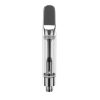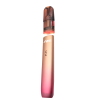Can You Smell Your Own Vape?
Understanding Vape Odor
The odor of vape comes from the ingredients used in vape juice. Vape juice ingredients typically include propylene glycol (PG), vegetable glycerin (VG), flavorings, and nicotine. The combination of these elements produces a vapor that can carry a distinct smell, depending on the flavor and the composition of the vape juice.
Factors Affecting the Intensity of Vape Smell
Several factors influence how strong the smell of vape is. These include the type of device used (such as a dotmod vape or custom disposable vapes), the wattage at which it operates, and the specific vape juice ingredients. Additionally, environmental factors like room ventilation and the presence of fabrics or carpets can amplify or reduce the lingering scent.
Self-Perception of Vape Smell
Why It’s Hard to Smell Your Own Vape
Self-perception of odors, including vape smell, can be challenging due to olfactory adaptation. This phenomenon occurs when your sense of smell becomes less sensitive to an odor after continuous exposure. As a result, vapers might not notice the smell of their own vape as intensely as others do.
Tips to Detect Your Own Vape Odor
To gauge whether your vape is noticeable, you can take several steps:
- Ask a Non-Vaper: A person who does not vape will have a more acute sense of the smell.
- Use Neutral Spaces: Vape in a neutral area and then return to it after some time has passed.
- Maintain Good Ventilation: Ensure proper ventilation in your vaping area to disperse the vapor quickly.
How Can You Tell If Someone Vapes in a Room?
Signs of Vaping in Enclosed Spaces
Visual Clues: Vapor Clouds and Devices
One of the most obvious signs that someone has been vaping in a room is the presence of vapor clouds. Unlike smoke, vapor dissipates quickly but can still linger momentarily, making it noticeable. Additionally, spotting vaping devices like a dotmod or mechanical mod (mech mod) can indicate recent vaping activity.
Odor Indicators: Recognizing Common Vape Scents
Each vape juice flavor has a unique scent. Fruity, dessert, and menthol flavors are particularly distinguishable. If you notice an unusual or sweet smell, it could be from vaping. Top vape brands often use strong, pleasant flavors that can be easily identified.
Environmental Changes
Air Quality and Residue
Vaping affects air quality by introducing particulates and chemicals into the air. Over time, these can settle on surfaces and fabrics, leaving a residue that can trap odors. You might notice a thin film on windows or surfaces in rooms where vaping frequently occurs.
Impact on Fabrics and Surfaces
Fabrics and carpets can absorb vape odors, making the smell more persistent. Regular cleaning and using air purifiers can help mitigate these effects.
Can You Test If Someone Is Vaping?
Testing Methods
Air Quality Monitors and Sensors
Advanced air quality monitors and sensors can detect the presence of vape-related chemicals in the air. These devices measure levels of propylene glycol, nicotine, and other components, providing a clear indication of whether vaping has occurred.
Residue Analysis: Surface Swabs and Tests
Another method to test for vaping is residue analysis. Surface swabs from furniture, walls, or electronics can be tested for nicotine and other chemicals commonly found in vape juice. This method is particularly useful in determining long-term exposure.
Health and Legal Considerations
Privacy Issues
While testing for vaping can be useful, it also raises privacy concerns. It’s important to consider the implications of testing in personal spaces and ensure that any testing is conducted ethically and with consent.
Health Implications of Secondhand Vape Exposure
There is ongoing research into the health effects of secondhand vape exposure. While it is generally considered less harmful than secondhand smoke from cigarettes, there are still potential risks, especially for individuals with respiratory issues.
Does Vaping Indoors Make Your House Smell?
Short-term and Long-term Effects
Immediately after vaping, the scent of the vape juice can linger in the air. This is more noticeable with stronger flavors and higher VG content, which produces denser vapor clouds.
Long-term Residue and Stains
Over time, continuous vaping indoors can lead to residue buildup on walls, ceilings, and other surfaces. This can cause discoloration and persistent odors, similar to the effects of smoking. Regular cleaning and maintenance can help reduce these long-term impacts.
Odor Removal Techniques
Ventilation and Air Purifiers
Improving ventilation is one of the most effective ways to manage vape odor. Using fans, opening windows, and running air purifiers can help disperse the vapor quickly and reduce lingering smells.
Cleaning Strategies for Surfaces and Fabrics
Regularly cleaning surfaces and fabrics can help remove trapped odors. Using specialized cleaning solutions designed to break down the chemicals in vape juice can be particularly effective. Additionally, washing curtains, carpets, and upholstery can help maintain a fresh-smelling environment.
FAQ
Can vaping indoors affect people with allergies or asthma?
Yes, vaping indoors can affect individuals with allergies or asthma. The chemicals in vape juice can trigger respiratory symptoms and exacerbate existing conditions. It’s important to ensure proper ventilation and consider the health of those around you when vaping indoors.
How can I prevent vape odor from lingering in my home?
To prevent vape odor from lingering, use a combination of good ventilation, air purifiers, and regular cleaning. Opting for custom disposable vapes with less noticeable smells and regularly washing fabrics and surfaces can also help.
Are there vapes with less noticeable smells?
Yes, some top vape brands offer custom disposable vapes and devices like AME that are designed to produce less odor. Choosing vape juice with mild flavors and lower VG content can also reduce the intensity of the smell.
How do I choose the best vape pod system to minimize odor?
When selecting the best vape pod system to minimize odor, consider devices that offer precision control over vapor production, such as dotmod vape and vaperz cloud products. These systems often come with options to adjust settings for a less noticeable vapor output.
What are some effective cleaning strategies for vape residue?
Effective cleaning strategies for vape residue include using vinegar or specialized cleaners to break down the residue on surfaces, regularly washing fabrics, and using air purifiers to capture airborne particles. Ensuring good ventilation can also help reduce the buildup of residue over time.
While vaping can leave noticeable odors, understanding the factors that contribute to vape smell and employing effective detection and cleaning methods can help manage and minimize these effects. Whether you’re concerned about self-perception of vape odor or the impact of vaping indoors, taking proactive steps can ensure a more pleasant environment for everyone.










